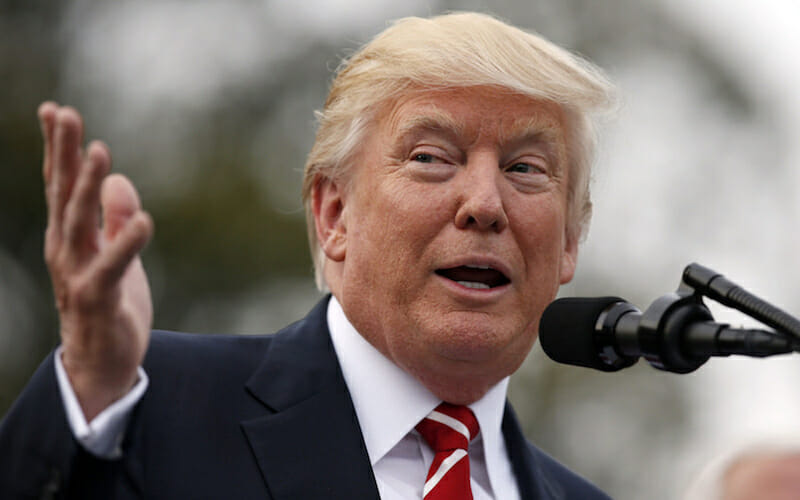
Donald Trump and the Dangers of Creeping Sovereignty
On Thursday, December 21, the U.N. General Assembly voted overwhelmingly to approve a resolution condemning the recent decision by the Trump administration to fully recognize the whole of Jerusalem as the capital of Israel and relocate its embassy to the city from the internationally recognized capital, Tel Aviv.
The move earned a swift and negative response from the administration before any votes were even cast. President Trump condemned the vote and defended his decision, calling it a recognition of the obvious and deflecting any hints that this would challenge his administration’s already uphill fight to strike a deal between the Israelis and Palestinians. U.S Ambassador to the U.N. Nikki Haley similarly criticized the vote and underscored potential consequences for countries who support the measure.
But beyond the typically brash and bold response from a president not known to handle criticism gently, there is buried an even more dangerous notion that threatens more than the fragile Middle East peace process. In justifying his decision to recognize Jerusalem in contravention of all international decisions, Donald Trump revealed a dangerously creeping and expansive notion of sovereignty.
The State Department questioned any criticism of the recognition, asserting in an official statement that the “decision that was our sovereign right to make,” regardless of international rules.
Ambassador Haley followed suit with a similar statement, calling the move “an attack…for the very act of exercising our right as a sovereign nation.”
What makes this conception of sovereignty uniquely dangerous is that it expands what actions are protected under the internationally recognized and enshrined idea of sovereignty. Typically, states had protection from external interference with their internal affairs, within reason, giving them coverage under a negative notion of sovereignty, a ‘freedom from’ notion. This usually never extended beyond a state’s borders, and meant that states were still bound by international norms, laws, and practices in their external conduct.
The recent arguments from the Trump administration threaten to overturn this. His statements and those of others in his administration reveal a positive notion of sovereignty, a ‘freedom to’ approach. Under such a thought process, states could reasonably be unburdened by international norms and decisions, both internally and externally, unless specifically agreed to by the state. And if President Trump’s approach to NAFTA, TPP, and the Paris Accords reveals anything, even this might be fleeting.
Trump’s wild west approach to sovereignty would free any state to act as it wishes in foreign or domestic affairs, absent clear and continuous consent to the contrary. And President Trump does not reserve this approach for solely geopolitical tinderboxes. In announcing his opposition and withdrawal from the Paris Climate Accord, President Trump relied just as much on this idea of sovereignty as he did questionable economic claims.
Should this new view of sovereignty continue and cement in the policy and theory of the United States, and others, it could have enormous consequences for the world and threaten to overthrow the international order as we know it. Rules regulating global commons could be ignored on claims of infringements on national freedom. Globally mandated responses, such as sanctions or political punishments, against violators of human rights or international law could be argued away based on a freedom to act in accordance with domestic opinion.
This new theory of sovereignty also threatens not only the global order but American security and allies. Under the logic of Trump’s sovereignty, what is to stop Russia from recognizing the Republic of Donetsk and open up bilateral relations and agreements with its government. What is to stop China from doing the same for ethnic Han regions in Myanmar, or Iran from asserting its own decisions and sovereignty over the Strait of Hormuz. Though it may support his policy towards Israel, President Trump’s justification could empower America’s adversaries.
Whether wrong or right, President Trump’s decision to overturn decades of international practice to support the recognition of Jerusalem threatens the international order and global security. This idea needs to be thoroughly challenged and quickly put to bed before it takes root and begins to spin the world out of control.

